
10688 / Lopes Brenna, Moramarco + Ventrella, Filippo Bolognese. © Museo de Arte de Lima (MALI)
The Last Shall Be First: The Importance of Human Figures in Renders
由专筑网邢子,小R编译
在建筑设计中,专业人士必须不断了解在构建项目之前如何清晰、易懂地呈现项目,这使得不熟悉该领域的人们可以更容易地感受到空间。渲染是建筑师最常用的三维呈现方法,因为它可以真实地表达项目。但是,这意味着人们对于居住空间的应用与感受方式必须与预期的图片和对建筑及其所处位置的设计表达保持一致,因为项目最终服务于人们的活动。
In architecture, professionals must constantly deal with the challenge of representing a project clearly and understandably before it is built, making the space somehow more perceptible to people who are often not specialized in the field. Rendering is one of the most popular methods of three-dimensional representation among architects because it portrays the project more realistically. Reality, however, implies the presence of people and their ways of inhabiting spaces, which can be depicted through human figures, that must be coherent with the intended picture and interpretation of the architecture, the place it is located in, and the way it is inhabited.
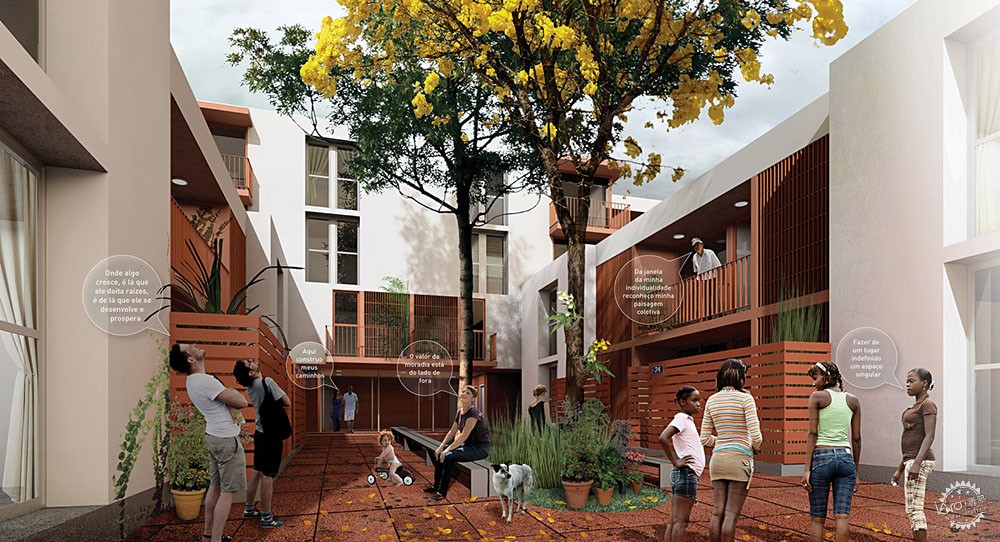
© Vigliecca & Associados
意向草图可以通过不同的样式和方式来描绘人的身材和比例,从而反映出每位建筑师的想法。但是,数字绘图缺乏独特的绘画笔触,通过照片、水彩和插图,人们以不同的形式表现人物时,可以通过某种方式传达与设计本身有关的想法,表达出逼真、简洁、有趣的概念图,并提供给专业人员。因此,这些图片是设计人员、项目、客户,投资者、竞赛评审或任何目标人士之间交流的重要工具。
Freehand drawings can reflect the expression of each architect through different styles and ways of illustrating the human figure and scale. Digital drawings, however, may lack the distinctive drawing strokes, but the different forms of representation of people, through photographs, watercolors, and illustrations, still have a way of communicating ideas related to the design itself (expressing a realistic, concise, playful, conceptual image, etc.) and to the professional or office that created it. Therefore, these are important tools for communication between the office, project, clients, investors, contest jurors, or whoever the image targets.
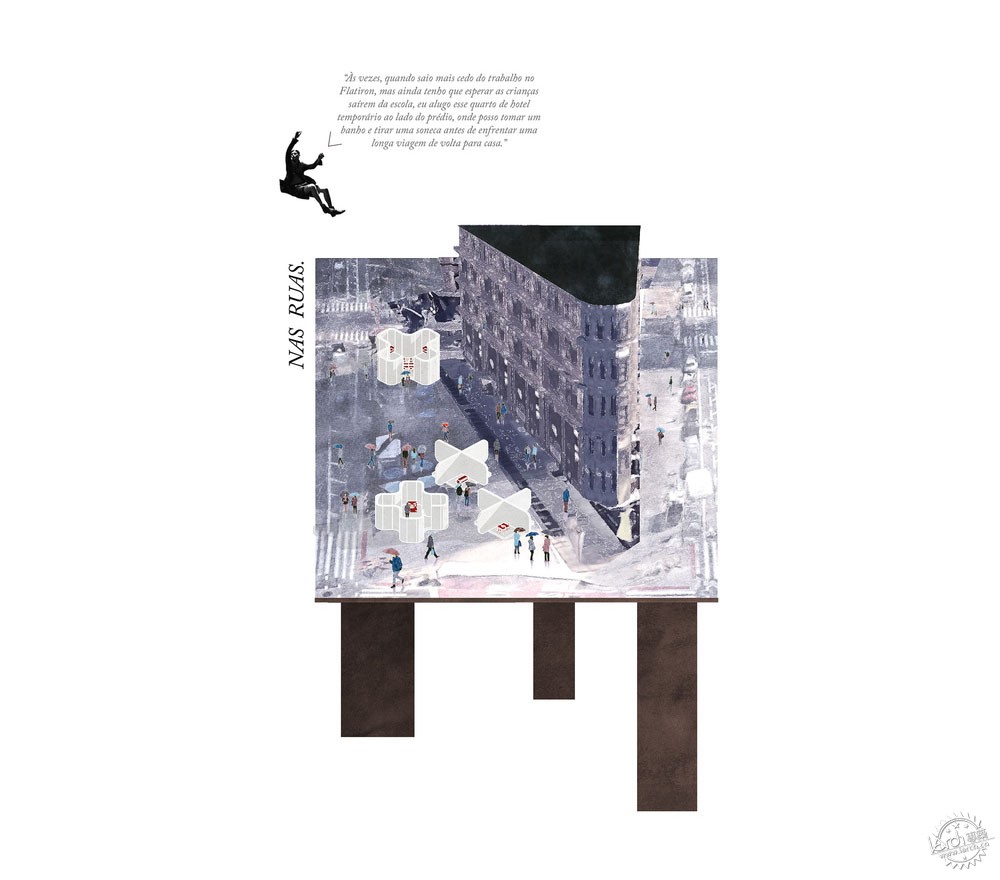
© Carol Vasques, Diego Saraiva e Pedro Dal Molin.
与草图不同,渲染通常描绘出非常“真实”的环境,渲染图像以类似于3D模型的数字化图片吸引客户,并使用无数参数来控制材料的外观、粗糙度、阴影、反射、亮度等其他特征。
通过渲染创建图像时,人物比例对于了解一些空间概念至关重要。例如,通过提供视觉参考,将人的大小与建筑物的大小进行比较,建筑物的大小在人物的对比下变得更加清晰。
Unlike sketches, renders usually depict a very "real" setting. They lure clients with images that resemble a picture of something already built, yet produced digitally, based on 3D models and adjusted using tools that control the materials' appearance, roughness, shadows, reflections, brightness and other characteristics in countless combinations.
When creating images through rendering, the human scale is crucial to understand several things. The size of a building, for example, becomes more legible with the presence of human figures, by providing a visual reference to compare the size of people with the size of the building.
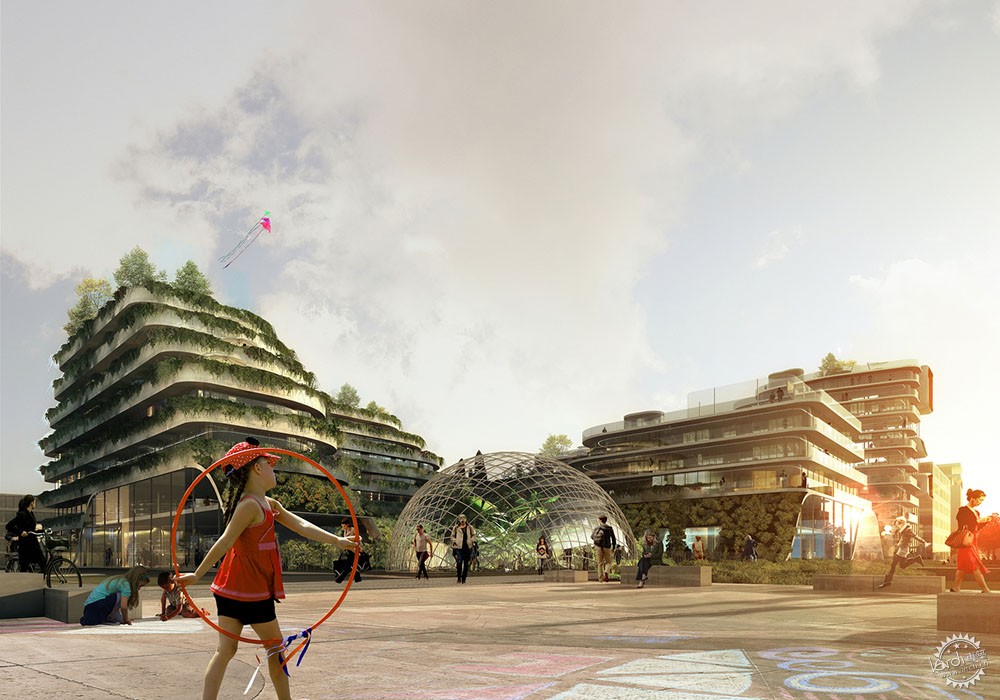
© Luxigon
尽管可以仅基于建筑本身来确定比例,例如以楼梯或门的尺寸为准,但是仅从建筑图像可能无法完全理解建筑空间的设计,不同的空间可能会根据人们的活动而具有思考性、参与性或娱乐性,这暗示了建筑结构预先确定或隐含的潜在用途。
Although it is possible to identify proportions based solely on architecture itself, taking for example the dimensions of a staircase or a door, the purpose of a building may not be fully understood from an image of an architectural subject alone. A single space may assume either contemplative, participative, or recreational meanings depending on the activities performed by the people, suggesting potential uses other than those predetermined or implied by the architecture.
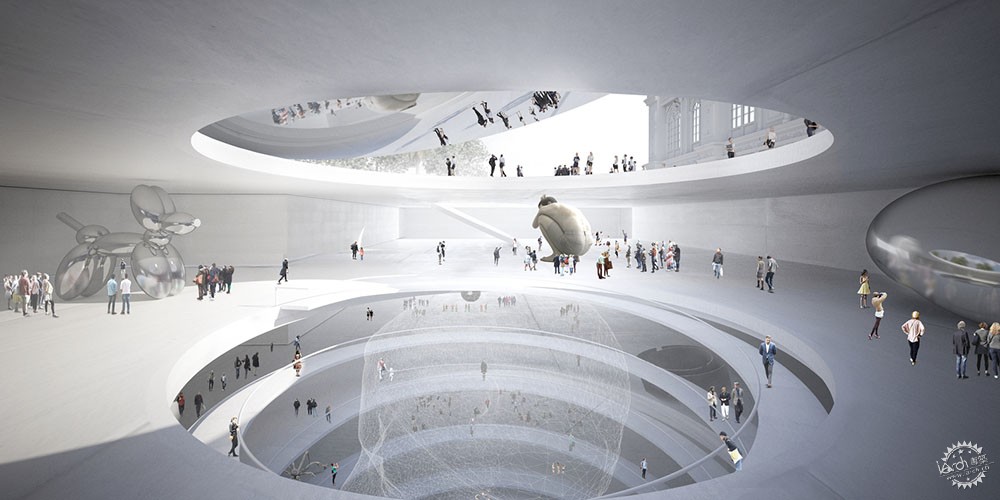
MUSEO EN 3 ACTOS / SMAR Architecture Studio. © Museo de Arte de Lima (MALI)
建筑是为人设计和建造。从这个意义上讲,人物的存在不仅体现在渲染中,而且还存在于素描、拼贴画或任何其他形式的三维表示图中,这些图像可以表达人与空间的关系,因此,在热带地区穿外套的人或斯堪的纳维亚符号出现在明显与该文化无关的地区的渲染图像就会显得很奇怪,人物的出现与项目及其所处的环境也有关系。
Architecture is designed and made for people. In this sense, the presence of the human figure not only in renders but also in sketches, collages, or any other form of three-dimension representation of a project, seems essential as an indication of who will be occupying that space. Therefore, renders that include people wearing coats in tropical regions, or Scandinavian characters in places where ethnic diversity is evident, seem odd. The importance of the human figure also relates to the connection between the project and the context in which it is placed.
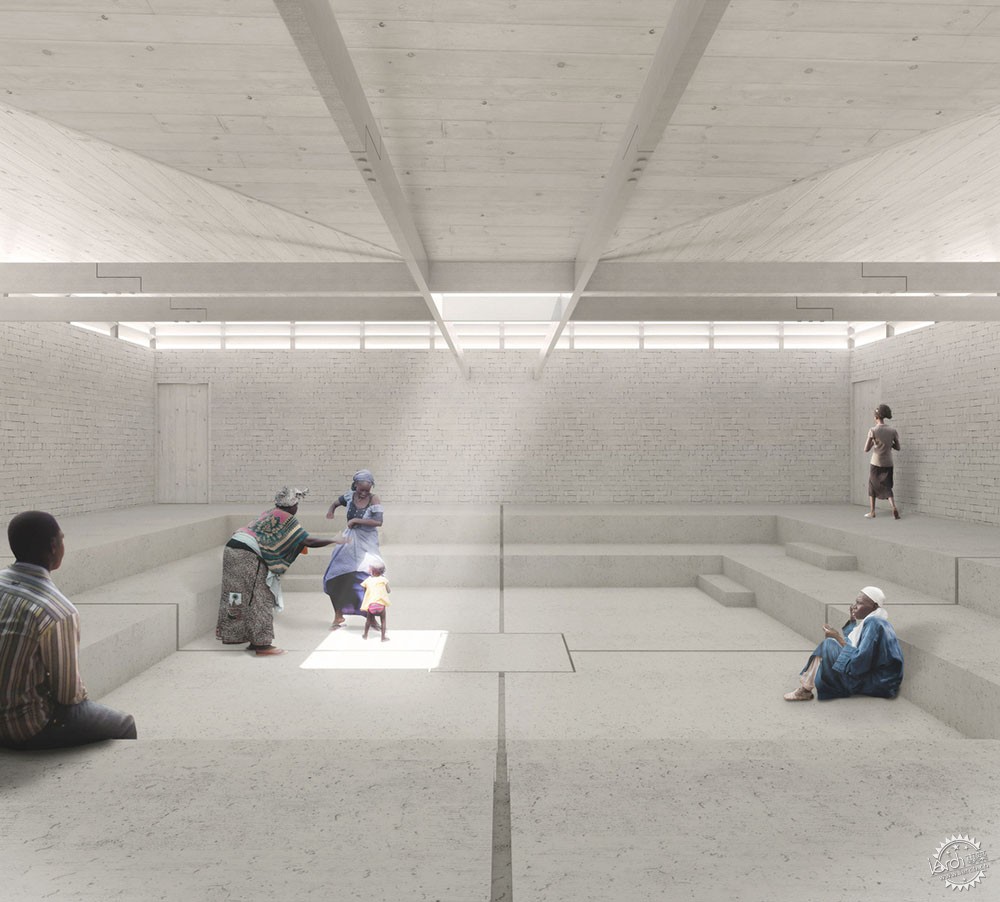
© MDB Studio
尽管人物是添加到建筑图像中的最后元素,但它代表的是建筑的主要关注对象,即使用者。正如建筑师需要以来人物的尺度来确定项目中某些距离和尺寸一样,它的存在也是建筑项目与渲染图像的受众之间交流的基础。
Although the human figure is one of the last elements to be added to architectural images - the latter being among the last stages of project development - it represents something that is or should be, the main concern of architecture: people. Just as we rely on human measures to determine certain distances and dimensions in the project, its very presence is also the basis for communication between the architectural project and the audience reached by the rendered images.
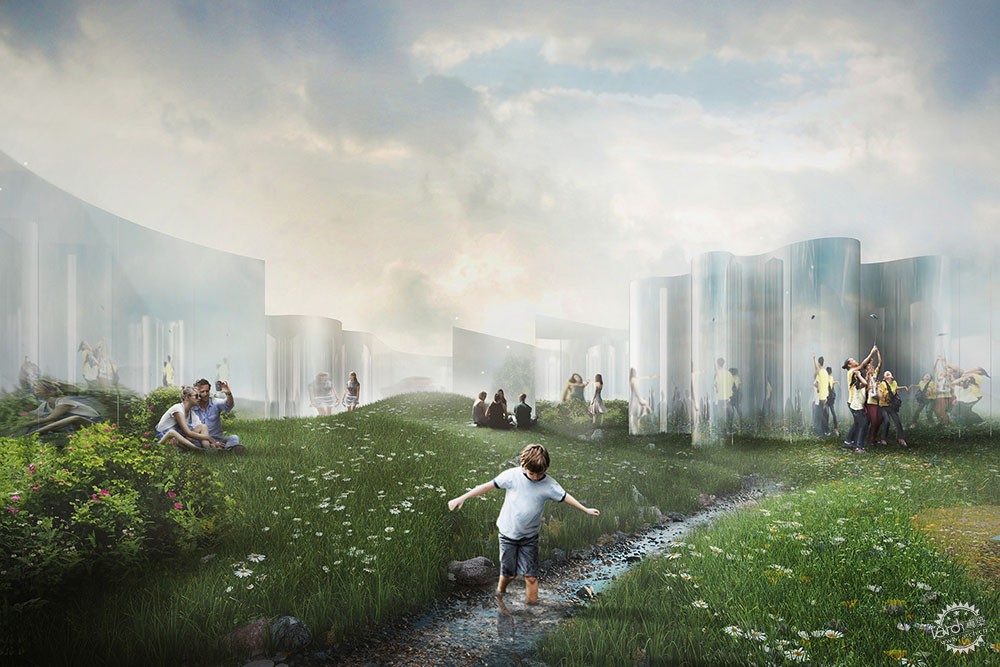
© Guillermo Hevia García + Nicolás Urzúa
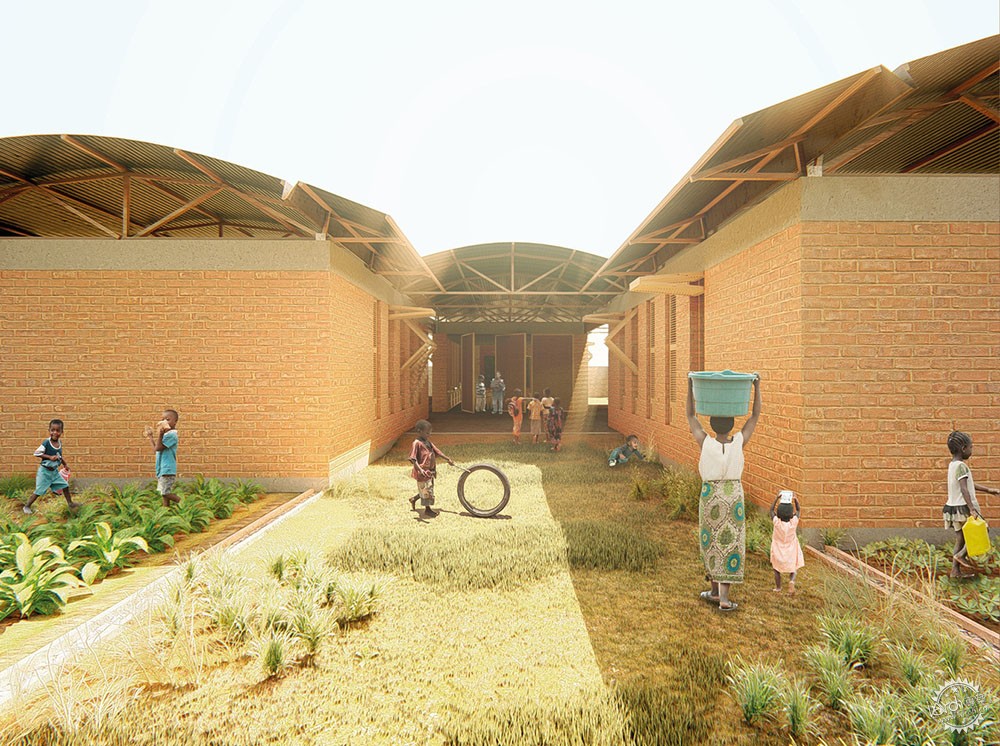
© Archstorming
|
|
